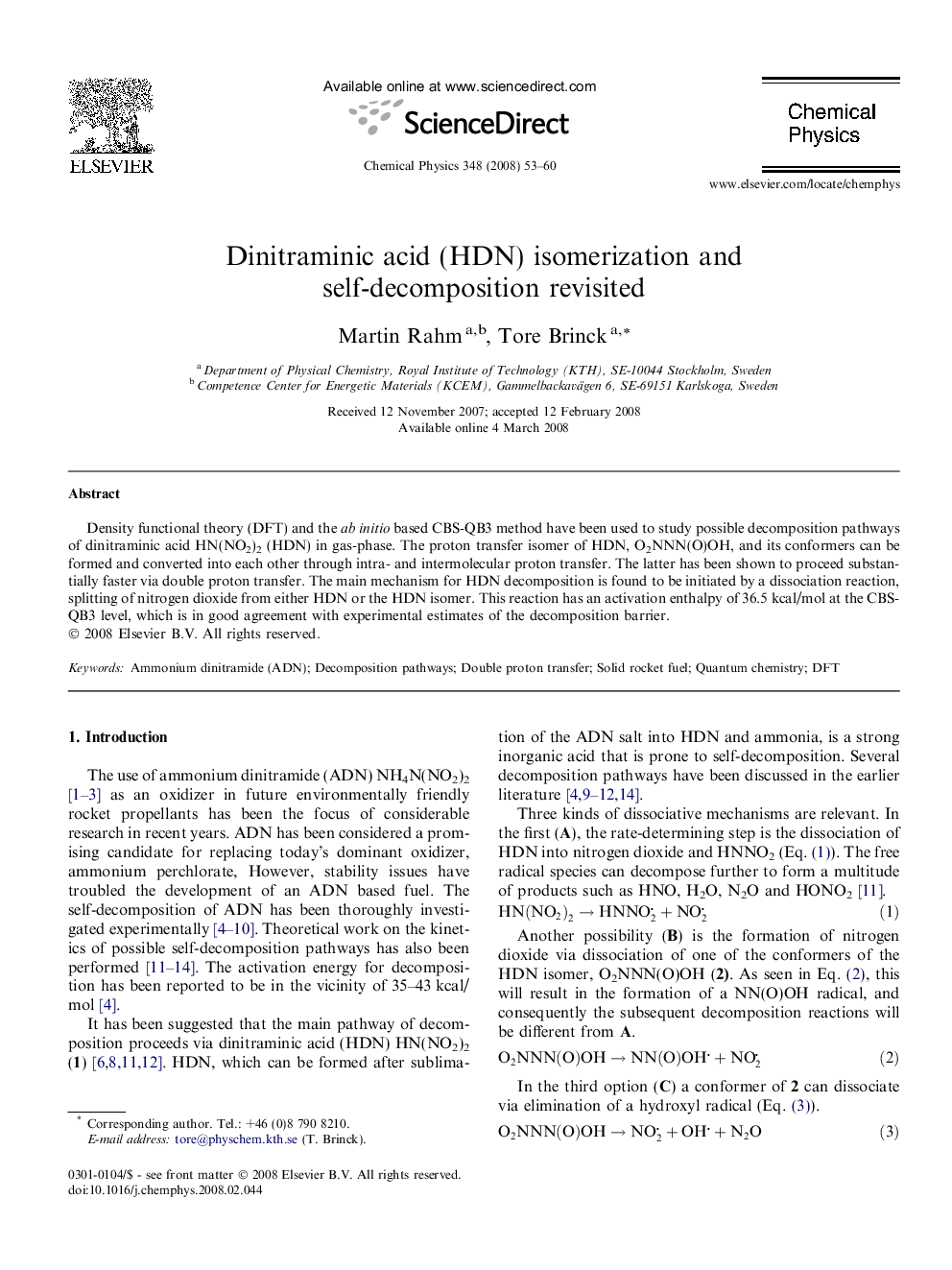| Article ID | Journal | Published Year | Pages | File Type |
|---|---|---|---|---|
| 5375996 | Chemical Physics | 2008 | 8 Pages |
Abstract
Density functional theory (DFT) and the ab initio based CBS-QB3 method have been used to study possible decomposition pathways of dinitraminic acid HN(NO2)2 (HDN) in gas-phase. The proton transfer isomer of HDN, O2NNN(O)OH, and its conformers can be formed and converted into each other through intra- and intermolecular proton transfer. The latter has been shown to proceed substantially faster via double proton transfer. The main mechanism for HDN decomposition is found to be initiated by a dissociation reaction, splitting of nitrogen dioxide from either HDN or the HDN isomer. This reaction has an activation enthalpy of 36.5Â kcal/mol at the CBS-QB3 level, which is in good agreement with experimental estimates of the decomposition barrier.
Related Topics
Physical Sciences and Engineering
Chemistry
Physical and Theoretical Chemistry
Authors
Martin Rahm, Tore Brinck,
